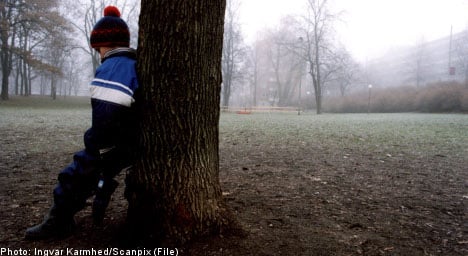According to a report from the Swedish Municipal Workers’ Union (Kommunal), 36 percent of parents worry about after-school programmes (fritidshem, commonly know as ‘fritids’) attended by their children.
“This is totally unacceptable. Children deserve a safe and nurturing environment,” union chair Annelie Nordström said in a statement, adding that the situation was “unsustainable”.
Parents’ most common concerns, according to the study, are that their children will be bullied, that staff won’t have enough time for their children, and that children will hurt themselves.
More than half of Swedish parents also feel pressure to pick their children up early.
According to Nordström, widespread cuts over the last three decades have gutted the resources available for after-school programmes, leaving the programmes underfunded and understaffed.
“There are too few adults to ensure every child’s safety and security,” she told the TT news agency.
“When groups have between 75 and 80 children, three adults is not enough.”
Last year, after-school programme groups had an average of 39 children, according to statistics from the Swedish National Agency for Education (Skolverket).
Overall, 83 percent of Swedish school children ages 6 to 9 are enrolled in after school programmes, which municipalities are mandated by law to provide for students up to 13-years-old in order to make it easier for both parents to work.
In the survey carried out by the Municipal Workers’ Union, 24 percent of parents reported their children had after-school programme groups with more than 40 students, with 38 percent reporting that the groups had gotten too big.
However 54 percent of parents thought after-school programme groups were about the right size.
According to the union, municipalities should receive more money from the state to help reduce the size of after-school programme groups and increase the number of specially-trained staff members who oversee the programmes.
The report comes two years after a review of 77 after-school programmes by the Swedish Schools Inspectorate (Skolinspektionen), which revealed a number of shortcommings.
At one in three schools, children had nowhere to go to relax or read a book and one in four needed to improve available safety measures.
The study commissioned by the union was based on responses from 1,000 parents and was conducted by the Novus Opinion polling firm.
TT/The Local/dl



 Please whitelist us to continue reading.
Please whitelist us to continue reading.
Member comments